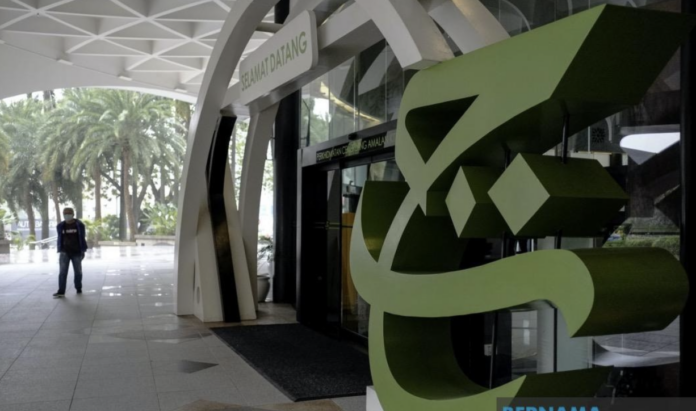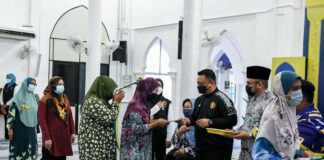MAKKAH, May 17 – It’s a tall order to satisfy the appetite of Malaysian pilgrims and to cure their longing for home-cooked meals in the holyland, the food preparation team of Lembaga Tabung Haji (TH) especially brought in 10 tonnes of pre-mixed spices by ship for food preparation throughout the haj season of 1445H/2024.
Director of Catering Operations at Lembaga Tabung Haji (TH) Rashidi Razali said the powdered spices with the Malaysian taste’ recipes were prepared in advance before being put into packs weighing five kilogrammes each in special boxes before being sent to the port to reach the destination.
Rashidi said he usually prepares these spices two months after the end of the haj operation because the journey by ship takes longer in addition to taking into account safety factors.
“For the preparation of food for pilgrims, raw materials are bought here and we only bring spices from Malaysia. This spice is a premix and can save costs because there is no need to buy onions, garlic, coconut milk.
“For example, when cooking rendang, we only need to heat the water and the kitchen staff only need to add this premix spice and raw ingredients because salt, sugar and tamarind are already mixed in the pre-mixed pack,” he told TH media personnel at the TH head office in Makkah recently.
He said this way, the taste of Malaysian food in the six kitchens in Makkah and two kitchens in Madinah can be adjusted and food preparation is also faster.
Among the menu prepared for the pilgrims, he said, are masak lemak, masak kicap, kari ikan, kari daging and nasi beryani on every Friday and each menu has been sent to TH as well as the Ministry of Health to obtain approval, including ensuring it is a balanced diet.
Rashidi, who has 17 years of experience in the kitchen, said he does not use paste because there is a fear of leakage and it is easy to damage whereas powder is lighter and easier to carry.
“At the same time, we also manage kiosks or cafeterias in 12 Tabung Haji buildings in Makkah and there are 11 cafeterias that will operate in those buildings.
“This cafeteria actually makes it easier for pilgrims to get breakfast as well as additional food. The menus that are sold are Malaysian-flavoured, such as nasi lemak and kuih-muih, with the pilgrims’ focus time being at dawn which is 5 to 8 am and also in the evening until Maghrib time,” he said.
While commenting on the challenge of catering to pilgrims, he said that the Saudi Arabian government’s laws regarding food preparation are quite strict and monitoring is always done from time to time to ensure that the food is not spoiled to avoid any untoward incidents to the pilgrims such as food poisoning.
In addition, catering constraints here also include the need to find raw materials which is limited, quite unlike in Malaysia, but here fish and vegetables are hard to come by.
















